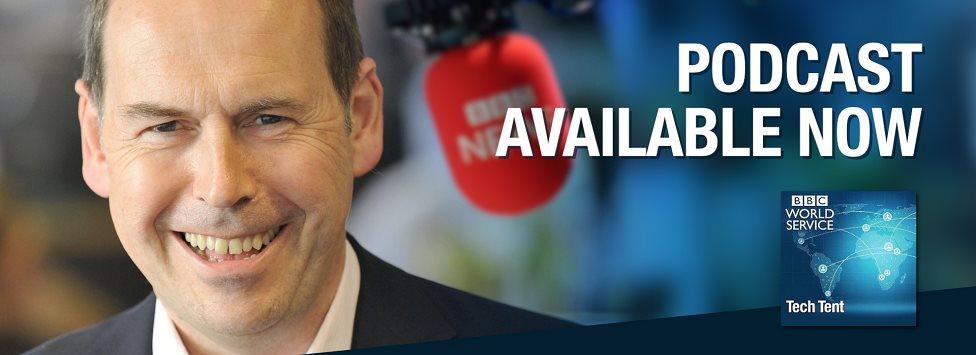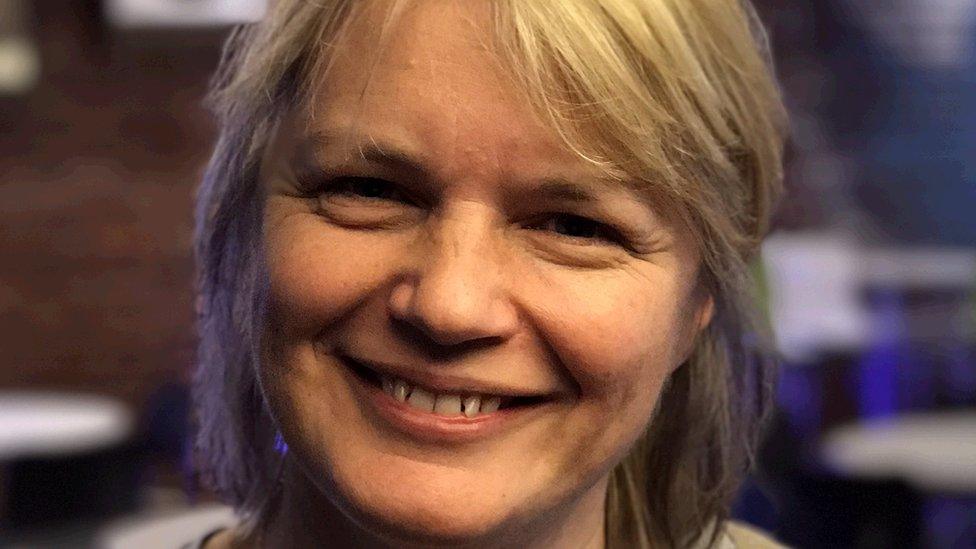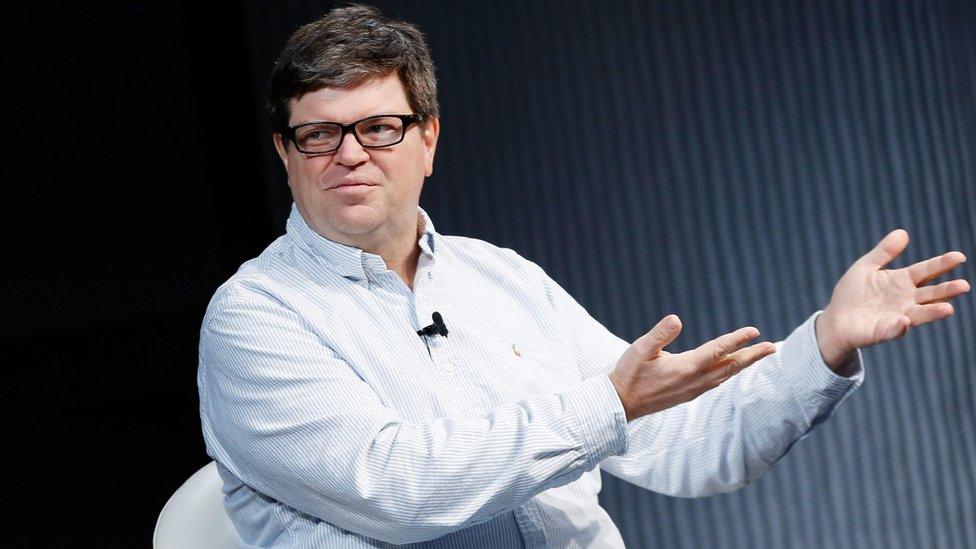Tech Tent: Truth and hate in an online world
- Published

Stream the latest Tech Tent episode on the BBC website
Download, external the latest episode as a podcast
Listen to previous episodes on the BBC website
Listen live every Friday at 15.00 GMT on the BBC World Service

All of a sudden, some of the great names of the digital age are facing a crisis. Google, Facebook and Twitter have always seen themselves as more than mere businesses - they believe they are on a mission to make our lives better.
Now, in the bitter aftermath of America's presidential election, they stand accused of becoming vehicles of lies and hatred rather than civilised debate.
In this week's Tech Tent we ask a difficult question for a programme that generally takes a sunny view of the world: is technology making our lives worse?
This week Twitter took decisive action on an issue that is damaging its reputation - and its commercial future. The company admitted that it had a problem with hate speech and abuse and introduced new measures to allow users to mute certain words and to report abusers more effectively.
We've been talking to Sinead McSweeney, the woman in charge of making Twitter a safer place for its European users. She came to the social network after heading communications for the police both in Northern Ireland and the Republic, useful experience perhaps for someone who has to examine the darker side of human behaviour.
Breaking the rules
We talk to her about the suspension this week of some high-profile members of some of America's right-wing groups who claimed they'd done nothing wrong. Without going into details, she insists that people are only suspended if they have broken the rules by directing hate towards individuals.

Twitter's security chief Sinead McSweeny
As someone who loved Twitter in the early years as a place where people engaged in mostly amiable debate, I find the current level of snarkiness, abuse and downright unpleasantness increasingly depressing.
I asked Sinead whether, as someone immersed in this every day, she was hopeful about the future of this platform and the wider internet. "I am hopeful about the future of humanity," she tells me. "One could watch the news and despair about the future of the world - online is just a reflection of what's going on in the world."
This week has also seen Google drawn into the debate about fake news on the internet, when it emerged that a story falsely stating that Donald Trump had won the popular vote in the presidential election came top in a Google News search.
On Tuesday, Google's chief executive Sundar Pichai told the BBC that this was "a learning moment for us" and that "there should be no situation where fake news should be distributed". That sounds like an impossible mission - and just how it might work we discuss with this week's special guest, Philip Howard from the Oxford Internet Institute.
He's an expert on what he calls computational propaganda, and has just published a paper that appears to show that Trump campaigners were twice as active on Twitter as the Clinton campaign - and much more adept at using automation in the form of bots to get their message across.
Mobile in Africa

Africa has hit one billion mobile subscriptions
For a sunnier view of what connectivity is doing to our world, we turn to the news that the number of mobile phone subscriptions in Africa is about to hit one billion.
On an ironically dodgy Skype line to Cape Town, we talk to Thecla Mbongue of Ovum about the way the mobile phone has transformed life and work across Africa.
From the plumber who can now do more jobs in a day because he can be contacted on the move, to the migrant worker who can now send money home via text message, the impact has already been huge.
But there are questions about the future. Mobile connections have leaped ahead, while fixed-line broadband has moved slowly. Without robust telecoms infrastructure the continent could struggle to cope with the flood of data expected as millions of objects as well as people get connected in the era of the Internet of Things.
Facebook's AI guru

Yann LeCun thinks algorithms can be trusted to do lots of jobs
Another optimistic view of technology comes from Yann LeCun, a towering figure in the recent history of artificial intelligence who's now heading up Facebook's AI efforts.
He tells us about a future where intelligent bots schedule our days and can engage in ever more sophisticated conversations with us. Asked whether that could mean Facebook producing voice-controlled hardware like the Amazon Echo or Google Home, he does not rule that out.
We spoke to Yann a couple of weeks ago before Facebook got embroiled in the fake news controversy. That already seems a more innocent time - from now on we may be more inclined to ask whether the algorithms behind virtual assistants and other AI developments are quite as benign and objective as their creators claim.